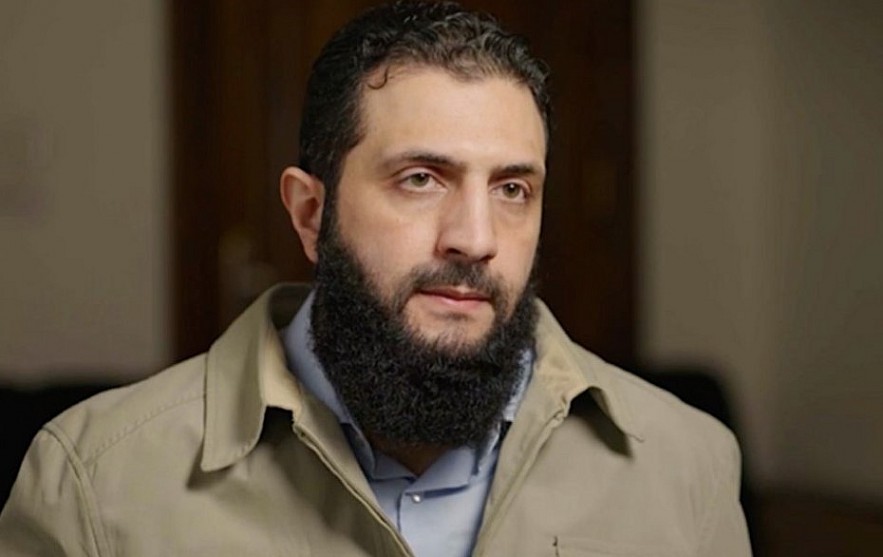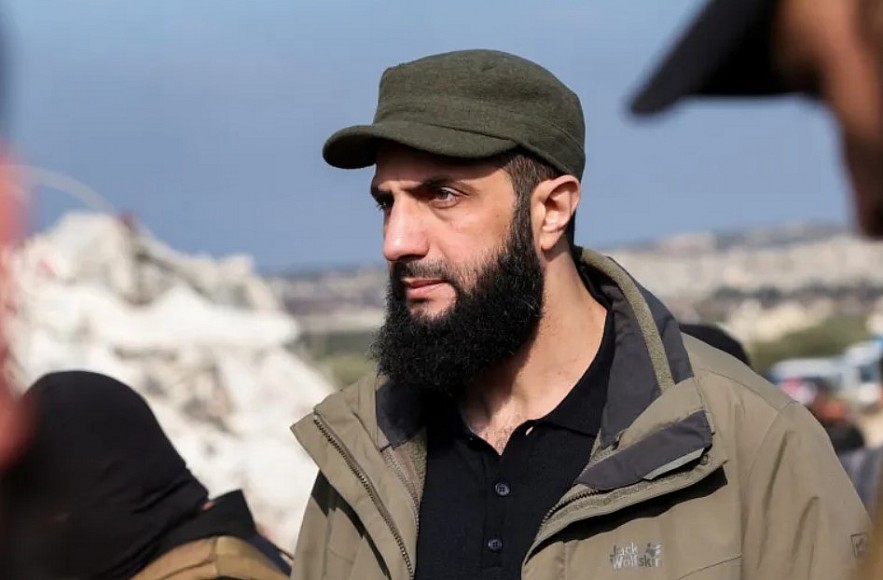Who is Abu al-Jolani: Early Life, Family, and Path to Leader of HTS in Syria
Latest Syria and Abu Mohammed al-Jolani
The leader of the Islamist Syrian rebel group Hay'at Tahrir al-Sham (HTS), Abu Mohammed al-Jolani, issued an order forbidding military forces from approaching public institutions in Damascus. He emphasized that these institutions would remain under the supervision of the former prime minister until they were "formally" handed over.
In a statement posted on Telegram, Jolani declared, “All military units in Damascus are strictly prohibited from entering or interfering with official institutions, which are to be safeguarded under the current administration until an orderly transition occurs.”
Jolani, who has begun using his birth name Ahmed al-Sharaa instead of his nom de guerre, also stressed, “No celebratory gunfire will be tolerated.” His remarks reflect an attempt to impose discipline and control over the rapid developments in the capital amidst the group’s newfound territorial advances.
Learn more: Who Are the Syrian Rebels in Aleppo: Key Leaders, Fighters, and Supporters
 |
| Abu Mohammed al-Jolani - Leader of Syrian insurgents HTS |
1. Early Life and Family Background
- Birth and Childhood: Ahmed Hussein al-Sharaa was born in 1982 in Riyadh, Saudi Arabia, where his father worked as a petroleum engineer. The family relocated to Syria in 1989, settling near Damascus.
- Family Influence: Al-Jolani grew up in a middle-class household with strong conservative values. His upbringing in a professional family likely instilled discipline, but little is publicly known about his parents’ specific influence on his later path.
- Cultural Context: Growing up near Damascus, al-Jolani was exposed to Syria's complex sociopolitical environment, which was marked by the Ba'athist regime's repression and underlying tensions within its diverse population.
2. Education and Early Radicalization
- Education: Al-Jolani’s early education remains undocumented, but he likely attended local schools in Damascus. His later association with ideological groups suggests exposure to religious and political teachings during his formative years.
- Radicalization: The U.S. invasion of Iraq in 2003 was a turning point in al-Jolani’s life. He moved to Iraq to join al-Qaeda in Iraq (AQI), becoming part of the insurgency resisting U.S. forces.
3. Militant Career and Rise to Power
- Role in Iraq: In Iraq, al-Jolani worked under Abu Musab al-Zarqawi, the leader of AQI. His role involved strategic planning and operational coordination, earning him recognition within militant circles.
- Imprisonment: Arrested by U.S. forces in 2006, al-Jolani spent five years in detention. This period likely deepened his commitment to extremist ideologies and provided him with an opportunity to network with other militants.
- Founding al-Nusra Front: After his release, al-Jolani returned to Syria, tasked by al-Qaeda to establish its Syrian branch. In 2012, he founded Jabhat al-Nusra, which became a dominant force in opposition-held territories.
4. Leadership and Strategic Shifts
 |
| Who is Abu Mohammed al-Julani, leader of HTS in Syria |
- Rebranding Efforts: Over the years, al-Jolani led his group through significant transformations. In 2016, he announced the group’s rebranding to Jabhat Fateh al-Sham, distancing it from al-Qaeda. A year later, he merged several factions to form Hay’at Tahrir al-Sham (HTS).
- Focus on National Goals: Al-Jolani increasingly framed HTS as a nationalist movement rather than a transnational jihadist group. Analysts believe this shift was aimed at gaining broader domestic support and reducing international pressure.
- Control of Idlib: Under al-Jolani’s leadership, HTS established administrative control over Idlib province, implementing governance structures such as a judiciary, social services, and education.
5. Personal Life
- Family: Al-Jolani is married and has children, but he keeps his personal life strictly private. This secrecy is likely a security measure given his high-profile role.
- Privacy: Unlike some insurgent leaders, al-Jolani avoids using his family for propaganda, emphasizing the operational aspects of his leadership.
6. Vision and Challenges
- Stated Goals: HTS under al-Jolani aims to overthrow the Assad regime, expel Iranian militias, and establish governance based on its interpretation of Islamic law. However, this vision has faced significant hurdles.
- Challenges:
- International Sanctions: HTS is designated a terrorist organization by the UN, U.S., Turkey, and the EU, limiting its ability to gain external legitimacy.
- Internal Divisions: Al-Jolani has had to navigate dissent within HTS and opposition from other factions, including al-Qaeda loyalists.
- Military Pressure: Continuous clashes with Assad’s forces and external actors like Russia and Turkey have tested the group’s resilience.
7. Legacy and Controversy
- Supporters’ View: To his followers, al-Jolani represents a leader fighting against tyranny and foreign occupation in Syria.
- Critics’ View: Critics highlight HTS’s history of violence, human rights abuses, and its continued designation as a terrorist organization.
- Historical Impact: Al-Jolani’s influence extends beyond Syria, affecting regional dynamics and the global discourse on extremism.
Conclusion
Abu Mohammed al-Jolani remains a pivotal figure in the Syrian civil war, leading HTS through complex transformations while facing significant internal and external challenges. His legacy is marked by both his strategic acumen and the controversy surrounding his leadership. As the conflict in Syria continues to evolve, al-Jolani’s role and vision will remain critical to the country’s future.
FAQs
-
Who is Abu Mohammed al-Jolani?
- He is the leader of Hay’at Tahrir al-Sham (HTS), a Syrian insurgent group.
-
What is his real name?
- His real name is Ahmed Hussein al-Sharaa.
-
Where was he born?
- He was born in Riyadh, Saudi Arabia, in 1982.
-
Why is HTS controversial?
- HTS is designated as a terrorist organization and accused of human rights abuses, despite its claims of focusing on Syrian national interests.
-
What are his goals for Syria?
- Al-Jolani aims to establish governance based on his interpretation of Islamic law and liberate Syria from Assad’s regime.
-
What is HTS’s international status?
- HTS is classified as a terrorist organization by the UN, U.S., Turkey, and the EU.
 Syrian National Anthem: English Translation, Original Lyrics And History Syrian National Anthem: English Translation, Original Lyrics And History "Ḥumāt ad-Diyār" is the national anthem of the Syrian Arab Republic, with lyrics written by Khalil Mardam Bey and the music by Mohammed Flayfel. If ... |

























